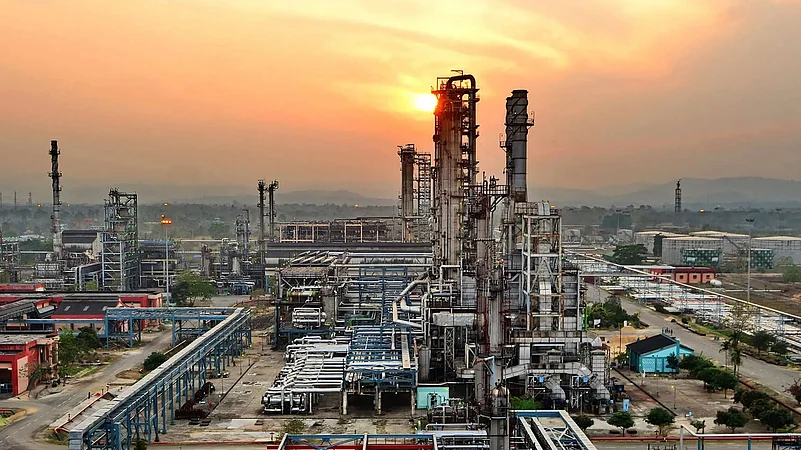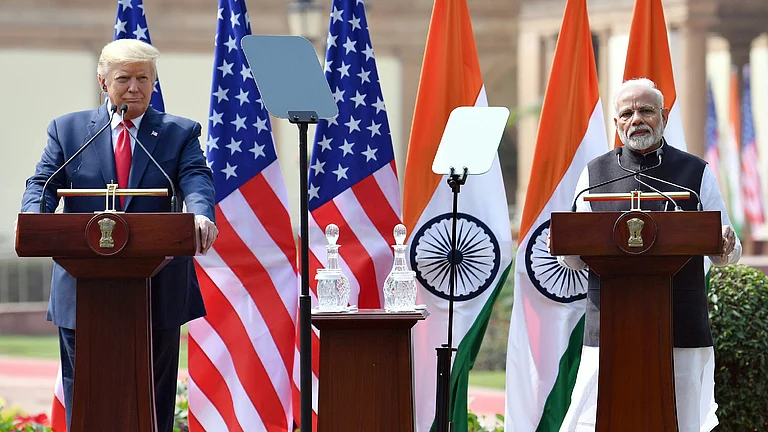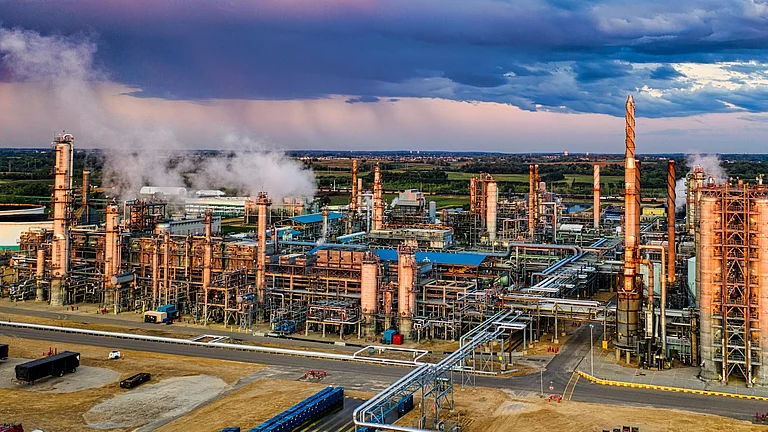
India plans major oil and gas reforms to strengthen energy security.
Navarro criticises India’s Russian crude imports, ignoring China and Türkiye’s purchases.
Draft rules to attract Chevron, Exxon, Total with policy change safeguards.
Government eyes ethanol expansion, considering E22–E27 blending and flex-fuel shift.
The Centre is hoping to finalise major reforms in the oil and gas sector of the country as India gears up for energy security amid US President Donald Trump’s tariff tantrums.
A senior government official told Business Standard that these measures are expected to help the government deal with geopolitical pressures from the US that has threatened India to stop buying oil from Russia, the Asian country’s largest oil partner.
Just few days back, White House Trade Advisor Peter Navarro said India's purchases of Russian crude needs to stop as it was funding Moscow's war in Ukraine. Writing for Financial Times, he said, "If India wants to be treated as a strategic partner of the U.S., it needs to start acting like one.”
He further mentioned that refining companies have turned India into a massive refining hub for discounted Russian crude.
However, Navarro did not mention that in terms of Russian oil, gas, and liquefied natural gas, China is the biggest buyer and also the only buyer of all sanctioned crude oil including Venezuela and Iran, industry executives noted.
In the third year of Russia’s invasion of Ukraine, China bought over $90 billion worth of Russian fossil fuels marking a 60 per cent more than India, data from Centre for Research on Energy and Clean Air, a leading Finnish think tank said. The Whute House Advisor also skipped mentioning Türkiye, a country that has bought $41 billion of fossil fuels from Russia during the period.
These reforms will mainly benefit biofuels and domestic oil production. Legal experts will complete vetting in a few weeks of draft rules under the recently amended Oilfields (Regulation and Development) Act, 1948, which will apply to potential participants like Chevron, Exxon, and Total in the country’s ongoing 10th drilling round, BS reported.
As per the official who spoke to BS, foreign drillers will be insured against any fiscal policy changes under these new rules, which kept reputed overseas explorers like Exxon, Shell, Chevron, and others from participating in the country’s first nine drilling rounds.
Ethanol Blending Talks
The government’s ongoing deliberations or proposals on expanding the use of the biofuel will not fiddle with the current controversy over ethanol-blended fuels. This is because the benefits from ethanol, such as cleaner air and lower oil imports, far outweigh minor issues over mileage or corrosion to motor parts, the official said.
The path to pursue over ethanol will be recommended by an inter-ministerial committee by September — to either go directly to flexible (flex) fuels, say 100 per cent ethanol-fired vehicles, or expand the blending percentage in stages from the current E20 (20 per cent ethanol blended with petrol) to E22 to E25 to E27. According to the official quoted above, once the report is out the government will also test the capability of the current crop of E20-compatible vehicles to absorb ethanol-laced petrol of higher percentages such as E22 or E27, depending on the recommendations of the committee.
The official further stated that the automotive industry was completely aware that E20 was a target to be achieved this year, and thereby the focus will now be on flex fuels. He added, “That was what the automotive industry was working on, which means that they got approvals for their investments on what the government was planning.”
“But broadly, this was the thing that you know, after E20, we move to flex fuels, and in the meanwhile, the inter-ministerial committee was looking at various options, to get standards developed for E22, E25, E27, so that we can take an informed decision which is the right way to go. Because we can have E20 and then straight away go to flex fuel or you can have E20, then E22, then E25, E27, E30 and then go to flex fuels,” he further noted.



































